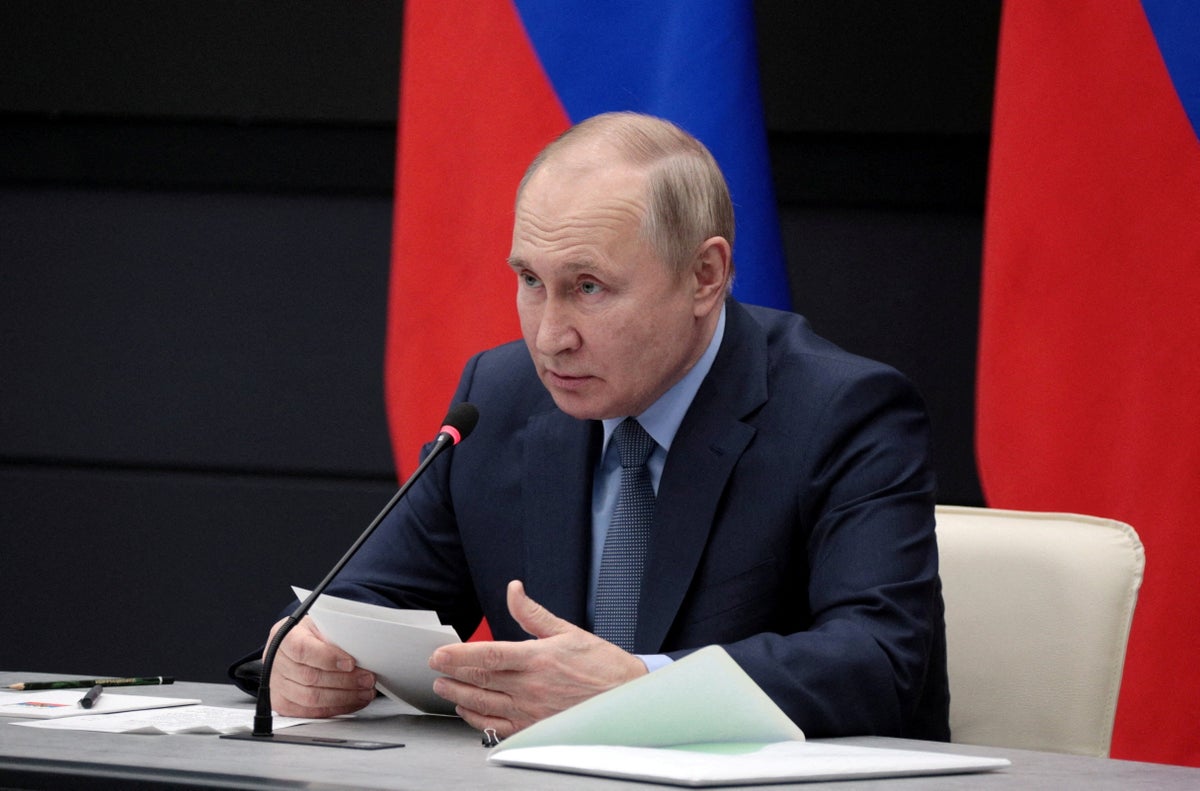
Russian president Vladimir Putin has signed a decree banning the supply of oil and oil products to nations participating in the Western price cap for five months from the start of February.
As part of an international campaign to curb Russia’s ability to wage war, the G7 nations and Australia announced earlier this month that the $60 (€57; £48) per barrel price cap would come into effect on 5 December or “very soon thereafter”. It aims to reduce Moscow’s income from selling oil while tempering the potential for any spike in global prices as the Ukraine war enters its tenth month.
In response, Russia announced a ban on oil products to people observing the price cap will begin on 1 February and last until 1 July.
The $60 figure sets the cap near the current price of Russia’s crude, which recently fell below $60 a barrel. Some have criticised the cap as not low enough to cut into one of Russia’s main sources of income.
Russia is the world’s second largest oil exporter after Saudi Arabia, and a major disruption to its sales would have far-reaching consequences for global energy supplies.
The Russian decree was presented in response to “actions that are unfriendly and contradictory to international law by the United States and foreign states and international organisations joining them”.
“Deliveries of Russian oil and oil products to foreign entities and individuals are banned, on the condition that in the contracts for these supplies, the use of a maximum price fixing mechanism is directly or indirectly envisaged,” the decree stated, referring to the US and other foreign states that have imposed the price cap.
“The established ban applies to all stages of supply up to the end buyer.”
Crude oil exports will be banned from 1 February, but the date for the oil products ban will be determined by the Russian government and could be after that date.
With agencies







